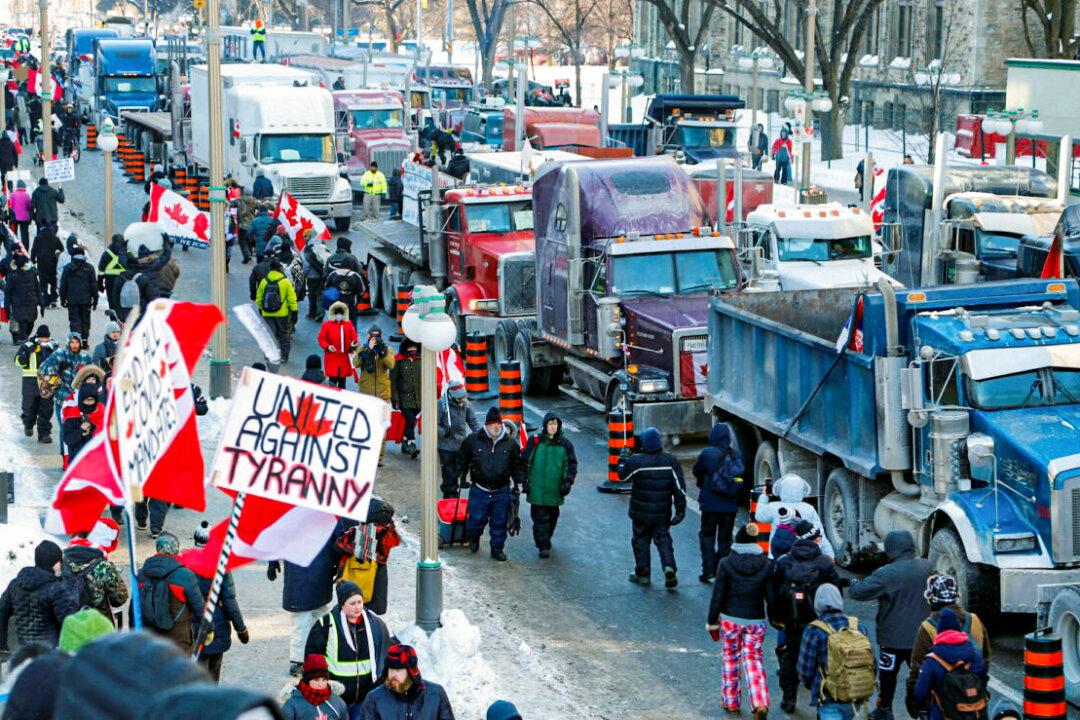OTTAWA—The chief of staff to former Ottawa mayor Jim Watson appeared to agree with a defence lawyer’s suggestion that a bylaw change in early 2022 that lowered the temperature at which drivers are allowed to idle their vehicles was an attempt to “freeze out the truckers and their families.”
“You don’t disagree with me, sir, that the effect of this bylaw was an attempt by the city council to freeze out the demonstrators in the red zone, correct?” asked defence lawyer Lawrence Greenspon on Sept. 22, day 13 of the criminal trial of convoy organizers Chris Barber and Tamara Lich.





